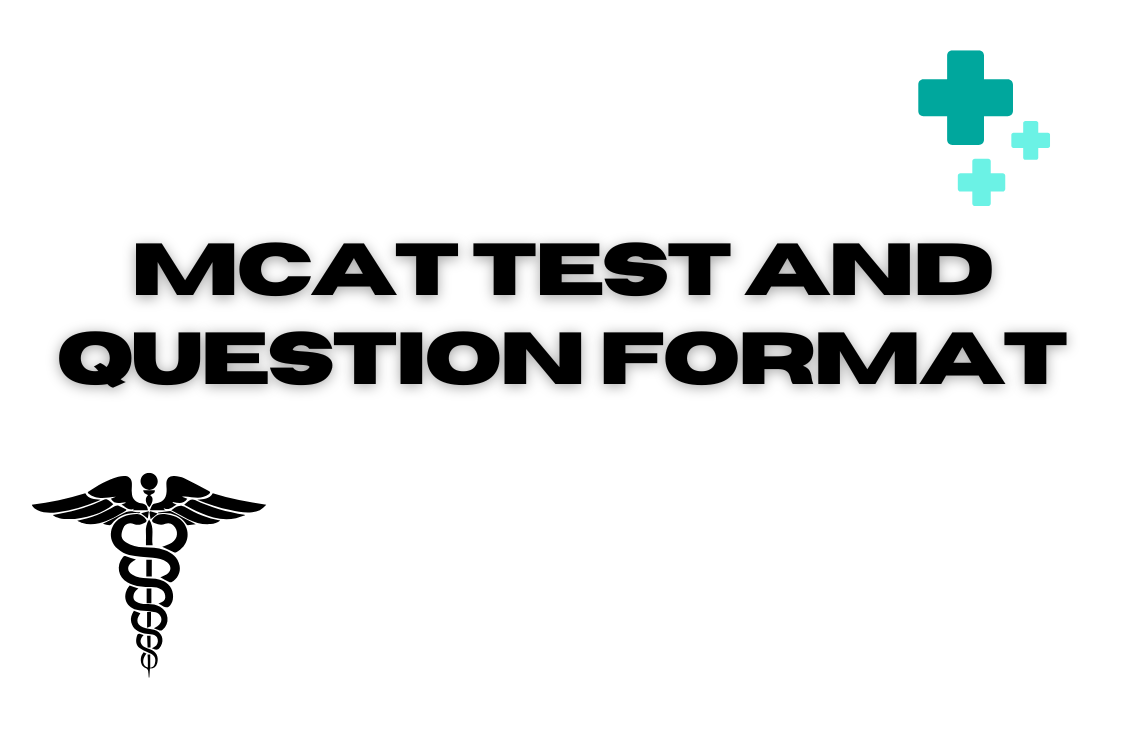
Beginning your pre-med journey can be intimidating, especially when preparing for the MCAT, but it doesn’t have to be. By equipping yourself with as much knowledge as possible, you can better prepare for what lies ahead.
One crucial aspect of taking the MCAT—beyond mastering the content—is understanding the test format. Knowing how the exam is structured will help you approach each section more efficiently and strategically.
This guide provides insights into each section of the MCAT and how the questions are designed to assess your readiness for medical school.
Chemical and Physical Foundations of Biological Systems
The first section is the Chemistry and Physics section. Historically, this has been one of the more challenging parts of the test, causing anxiety for many students. However, with proper preparation and strategic study methods, you can conquer this section.
Breakdown of Content:
- General Chemistry – 30%
- Introductory Physics – 25%
- First-Semester Biochemistry – 25%
- Organic Chemistry – 15%
- Introductory Biology – 5%
This section includes math-based questions, but calculators are not allowed. Practicing mental math and estimation techniques will be essential to performing well. Utilizing question banks and practice exams will help strengthen these skills over time.Recommended Courses:
- General Chemistry I & II
- Organic Chemistry I & II
- Physics I & II
- Biochemistry
Biological and Biochemical Foundations of Living Systems
The second section focuses on Biology and Biochemistry and is heavily weighted toward biological concepts.
- Breakdown of Content:
- Introductory Biology – 65%
- First-Semester Biochemistry – 25%
- General and Organic Chemistry – 10%
Students who excel in courses like cell biology, genetics, physiology, and biochemistry will have a solid foundation to perform well in this section. Strengthening your biology fundamentals is critical to success.
Recommended Courses:
- Introductory Biology
- Biochemistry
- Cell Biology
- Genetics
- Physiology
Critical Analysis and Reasoning Skills (CARS)
The CARS section is widely regarded as the most challenging section because it requires advanced reasoning and comprehension skills rather than scientific knowledge.
Question Breakdown:
- Reasoning Beyond the Text – Can you apply new information to what you’ve read?
- Reading Comprehension – Do you understand the main ideas and supporting arguments?
- Reasoning Within the Text – Can you analyze relationships between different ideas?
Since CARS does not require prior scientific knowledge, success in this section depends on strong reading speed, comprehension, and analytical skills. Regular practice with difficult passages from diverse disciplines will improve your ability to handle complex texts under timed conditions.
Psychological, Social, and Biological Foundations of Behavior
The final section covers Psychology and Sociology, assessing your understanding of behavioral sciences and their impact on health and society.
Breakdown of Content:
- Introductory Psychology – 65%
- Introductory Sociology – 30%
- Introductory Biology – 5%
Many students find this section manageable because much of the terminology can be memorized. Building a strong vocabulary and conceptual understanding will help immensely.
Recommended Courses:
- Introductory Psychology
- Introductory Sociology
General MCAT Format
The MCAT consists of 230 multiple-choice questions spread across four sections. Each section contains 53–59 questions, with an average question value of two points. The test duration is approximately 6 hours and 15 minutes, not including optional breaks.
Question Types:
- Passage-Based Questions: Most MCAT questions are linked to passages that provide context for answering questions.
- Discrete Questions: Standalone questions that test specific scientific knowledge.
As of 2025, the science sections contain 10 passages, each followed by 4–7 questions, along with 15 discrete questions per section. The CARS section has 9 passages with accompanying questions.
Key Scientific Inquiry and Reasoning Skills (SIRS)
The AAMC has identified four essential Scientific Inquiry and Reasoning Skills for the MCAT:
- Knowledge of Scientific Concepts and Principles
- Scientific Reasoning and Problem-Solving
- Reasoning About the Design and Execution of Research
- Data-Based and Statistical Reasoning
Developing these skills through active learning, practice tests, and review sessions will help ensure you perform well on the MCAT.
Final Thoughts
Understanding the MCAT’s format and question structure is a crucial step in your test preparation journey. Each section requires a different approach, and focusing on your weaker areas will help boost your overall score.
Take advantage of available resources, including practice exams, question banks, and study guides, to master each section. With consistent effort and strategic preparation, you can achieve your desired MCAT score and take the next step toward medical school.
Stay focused, stay determined, and trust the process—your medical career starts here!


